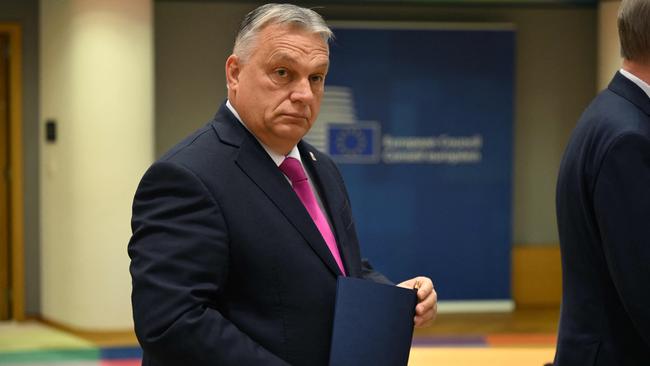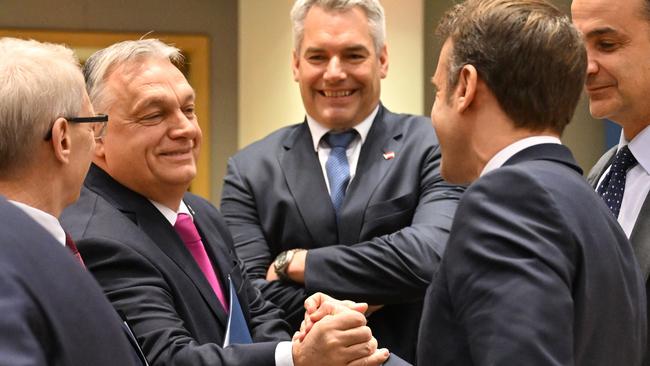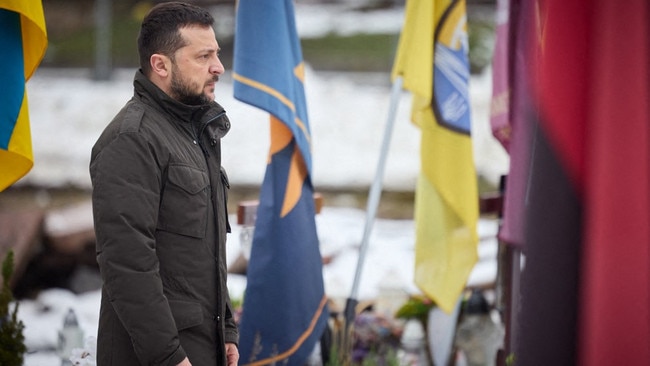EU works on new plan to get aid to Ukraine
The EU has begun work on a ‘plan B’ to bypass Hungary’s veto after the country’s Prime Minister, Viktor Orban, blocked a €50bn aid program for Ukraine.

The EU has begun work on a “plan B” to bypass Hungary’s veto after the country’s Prime Minister, Viktor Orban, blocked a €50bn aid program for Ukraine.
European Commission president Ursula von der Leyen hailed an earlier decision to open talks with Ukraine as a historic step and pledged to come up with a new funding plan that Mr Orban would not be able to block.
“This will be a landmark in our common history,” she said of the EU beginning immediate membership talks with Ukraine, and neighbouring Moldova that has been threatened by Russia.
“It is a big investment in democracies to stand tall and united.”
EU leaders will meet again early next year to try to agree on Ukraine grants and loans.
Ms Von der Leyen warned Hungary that it was “now necessary to work on political alternatives” to frustrate any Orban veto.
“We will use the time to ensure that whatever happens we will have an operation solution,” she said on Saturday.
Mr Orban’s veto was a blow to President Volodymyr Zelensky because the Brussels delay, caused by wrangling over a boost to the EU’s overall budget that requires unanimous support from the 27 member states, follows a deadlock in Washington over further aid for Ukraine.

Talks broke down at a European Council meeting as Mr Orban blocked the move, with all 26 other EU governments against him.
He has demanded release of nearly €22bn ($36bn) funds for Hungary, previously frozen by Ms von der Leyen in “rule of law” disputes with Budapest.
The commission last week released €10.2bn in suspended funding after Hungary passed special “enabling” legislation.
But Mr Orban is demanding a further €11.5bn in regional aid and €400m withheld in pandemic recovery loans or grants.
“I’ve always said that if someone wants to amend the budget law, this is a great opportunity for Hungary to make it clear that it should get what it deserves. Not half, [or] a quarter, but it must get the whole thing,” Mr Orban said.
Further isolating the Hungarian leader, Russia congratulated him on blocking the funding at a time when President Vladimir Putin has vowed to step up the war against Ukraine.
“Hungary … firmly defends its interests, which impresses us,” a Kremlin spokesman said.
Mr Zelensky had previously accused Mr Orban, the European leader closest to Mr Putin, of acting on behalf of Russia.

Other leaders reassured Ukraine that the aid program was still in play, noting that if Hungary continued to block it, there were ways for the EU to bypass Mr Orban’s veto.
“There are workarounds,” Irish Prime Minister Leo Varadkar said.
There is cautious optimism that Mr Orban will back down again after he left the meeting in Brussels in a prearranged move allowing the EU to open membership talks with Ukraine in his absence.
Mr Zelensky, who did not attend the summit because of Mr Orban’s veto threat, called the membership talks decision “a victory that motivates, inspires, and strengthens”.
The Times



To join the conversation, please log in. Don't have an account? Register
Join the conversation, you are commenting as Logout